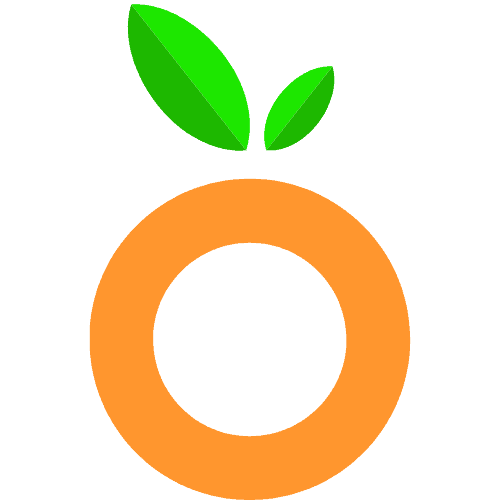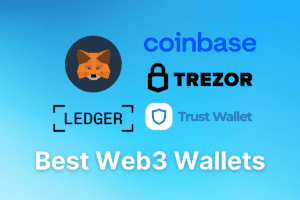9 NFT Business Ideas To Consider
We’re reader-supported; we may earn a commission from links in this article.
If you’re looking for business ideas that will be successful in the future, you should consider investing in Non-Fungible Token NFT businesses!
NFT businesses are those that use new technologies or platforms to create unique products or services.
With the rising popularity of owning and increasing utility of NFTs, there are plenty of opportunities to start a business in NFTs.
Here are 9 NFT business ideas that will gain traction in 2023. Read on for more information!
What Are Some NFT Business Ideas?
1. Trade NFTs
You can buy and sell NFTs like you would any other commodity. There are already online marketplaces where you can do this, such as OpenSea.
This is a good option if you’re looking to make some quick money, as you can buy low and sell high. You can also trade NFTs for other assets, such as Bitcoin or Ethereum.
However, it’s important to remember that the value of NFTs is highly volatile, so you could end up losing money just as easily as you could make it.
2. Create an NFT Marketplace
If you’re looking to create a more long-term business, you can create an NFT marketplace. This is similar to Trade NFTs, but with the added bonus of being able to take a cut of each transaction.
There are already some popular NFT marketplaces, such as OpenSea and Rarible. However, there’s still room for more competition.
To create an NFT marketplace, you’ll need to build or find a platform that supports NFT transactions. Once you have this setup, you can start marketing your marketplace to potential users.
3. Sell NFT-Based Services
Another option is to sell services that are based on NFTs. For example, you could create artwork or videos that are stored as an NFT. Or you could develop a game that uses NFTs as in-game items.
This is a good option if you have creative or technical skills that you can utilize. It’s also a good way to tap into the growing demand for NFT-based services.
Some examples of NFT-based services include:
- Artwork or videos stored as an NFT
- A game that uses NFTs as in-game items
- A platform that allows users to create and sell their own NFTs
4. Develop an NFT Wallet
If you’re looking to get involved in the technical side of things, you can develop an NFT wallet. This is a piece of software that allows people to store and manage their NFTs.
There are already some popular wallets on the market, such as MetaMask and Trust Wallet. However, there’s still room for more innovation in this space.
To develop an NFT wallet, you’ll need to have a good understanding of blockchain technology. Once you have this, you can start building your wallet.
5. Open an NFT Storefront
Another option is to open an online store that specializes in selling NFTs. This is similar to creating an NFT Marketplace, but with the added bonus of having a physical presence.
This is a good option if you’re looking to create a more long-term business. It’s also a good way to tap into the growing demand for NFTs.
To open an NFT storefront, you’ll need to find a platform that supports NFT transactions. Once you have this set up, you can start marketing your store to potential customers.
6. Sell NFT Display Items
If you have a physical store, you can also sell NFT display items. These are items that show off an NFT that someone owns.
For example, you could sell a frame that displays an NFT artwork. Or you could sell a keychain that holds an NFT token.
This is a good way to tap into the growing demand for NFTs. It’s also a good way to promote your other products and services.
Some examples of NFT display items include:
- A frame that displays an NFT artwork
- A keychain that holds an NFT design
- A shirt with an NFT design
- A coffee mug with a logo of your favorite NFT collection
7. Teach an NFT Course
Another option is to teach a course on how to use or trade NFTs. This is a good option if you have expertise in the field.
If you’re looking to get involved in the educational side of things, you can teach a course on NFTs. This is a good way to help people understand this new technology and how it works.
To teach an NFT course, you’ll need to have a good understanding of the subject matter. Once you have this, you can start developing your course materials.
Some examples of topics that you could cover in an NFT course include:
- What are NFTs?
- How do NFTs work?
- What are the benefits of using NFTs?
- How can I use NFTs?
- What are some popular uses for NFTs?
8. Create an NFT Lending Platform
Another option is to create an NFT lending platform. This is a platform that allows people to borrow or lend NFTs.
This is a good option if you’re looking to get involved in the financial side of things. It’s also a good way to tap into the growing demand for NFTs.
To create an NFT lending platform, you’ll need to have a good understanding of blockchain technology. Once you have this, you can start building your platform.
9. Make an NFT-based YouTube Channel
If you’re looking to get involved in the creative side of things, you can make an NFT-based YouTube channel. This is a channel where you create videos about NFTs.
This is a good option if you’re looking to tap into the growing demand for NFTs. It’s also a good way to promote your other products and services.
To make an NFT-based YouTube channel, you’ll need to have a good understanding of blockchain technology. Once you have this, you can start filming your videos.
Some examples of topics that you could cover in your videos include:
- What are NFTs?
- How do NFTs work?
- What are the benefits of using NFTs?
- How can I use NFTs?
- What are some popular uses for NFTs?
Final Thoughts
These are just a few of the many NFT business ideas that you can start up. With the right planning and execution, you can tap into this growing industry and find success.
All the best in your NFT business! It’s a long and difficult road ahead, but if you work at it right, it will all pay off dividends in the long run!
Thanks for reading and all the best!

Justin Chia
Justin is the author of Justjooz and is a data analyst and AI expert. He is also a Nanyang Technological University (NTU) alumni, majoring in Biological Sciences.
He regularly posts AI and analytics content on LinkedIn, and writes a weekly newsletter, The Juicer, on AI, analytics, tech, and personal development.
To unwind, Justin enjoys gaming and reading.



